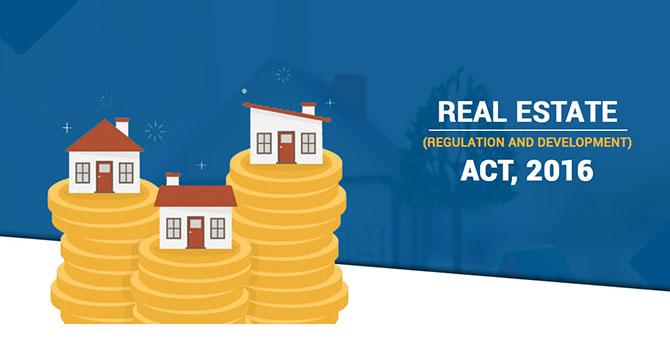Real Estate (Regulation and Development) Act, 2016

- 01 Apr 2024
Why is it in the News?
Eight years after Parliament passed the Real Estate (Regulation and Development) Act, 2016, the Union Ministry of Housing and Urban Affairs is in the process of reviewing the functioning of the Act, including by holding regular meetings with homebuyers and setting up a data collection unit within the Ministry.
What Is Real Estate (Regulation & Development) Act, 2016 (RERA)?
- The Real Estate (Regulation & Development) Act, 2016 is an act of the Parliament of India that strives to protect home buyers and helps escalate the investment made in the real estate industry.
- It was established under this Act to regulate the real estate sector.
- Additionally, it acts as the adjudicating body for faster dispute resolution related to the real estate industry.
The Primary Objectives of the Act:
- Ensuring Transparency: Promoting transparency in the real estate sector regarding the sale of flats, apartments, plots, buildings, or any real estate project.
- Establishing Dispute Resolution: Setting up an adjudicating mechanism to swiftly resolve disputes.
- Protecting Buyer Interests: Safeguarding the interests of buyers/allottees in the real estate domain.
- Building Trust: Fostering trust between buyers and promoters by leveraging regulatory authority.
- Furthermore, the Act mandates that Real Estate Regulatory Authorities establish and maintain a web portal containing pertinent details of all registered real estate projects for public access.
Reasons for RERA Implementation:
- The introduction of RERA was necessitated by challenges faced by the Indian real estate sector since 2012, including factors such as unemployment, recession, low rental yield, inventory pile-up, and ambiguous tax and arbitration frameworks.
Projects Covered by RERA:
- RERA covers commercial and residential projects, including plotted developments, that exceed 500 square meters or comprise more than 8 units.
- Additionally, projects lacking a Completion Certificate prior to the Act's commencement are subject to its provisions.
Benefits of RERA Implementation:
- Standardization: RERA ensures uniformity in the real estate sector concerning aspects like carpet areas and common areas, thereby preventing malpractices such as alterations in layout, area, agreements, and specifications.
- It also mandates disclosure of details regarding brokers, architects, and contractors.
- Timely Delivery: Developers are obligated to adhere to scheduled delivery timelines for office spaces or homes.
- Failure to comply may result in stringent penalties or imprisonment for the developer.
- Regulatory Compliance: RERA mandates obtaining clearance from government departments before the sale of any residential or commercial property.
- Financial Transparency: Developers are required to maintain separate bank accounts for each project, enhancing financial transparency and accountability.
- Warranty Protection: Buyers are empowered to report any structural defects in the building to the developer within one year of possession, with the developer obligated to rectify them free of charge.
Challenges Associated with RERA:
- Limited Scope: The regulations of RERA do not extend to ongoing projects or those stalled due to clearance issues, potentially leaving certain projects outside its jurisdiction.
- Approval Delays: Delays in approval and clearance from government agencies may impede the timely completion and delivery of real estate projects, affecting both developers and buyers.
- Exemption for Small Developers: Small-scale developers overseeing projects smaller than 500 square meters are exempt from RERA's provisions, and registration with the regulatory authority is not compulsory for them.
- Project Launch Delays: Projects cannot be launched without necessary clearances, which may result in delays in the commencement of new projects.
